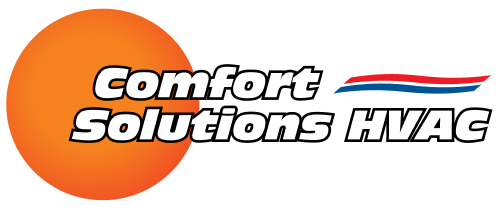Your Home Comfort Solutions HVAC Specialists in Easton, PA Discuss Key Improvements
When summer approaches and mercury levels rise, most Pennsylvanians reach for the control panel of their HVAC systems, to make sure their homes and offices remain cool and comfortable. However, from the time that central Air-Conditioning (AC) was invented in the early 1900s, it continues to have a love-hate relationship with the end consumers. On the one hand, these electricity-guzzling machines, with ozone-depleting refrigerants and loud, rumbling condenser units are a bane for the environment. On the other hand, ACs are a convenient and almost necessary addition to millions of American homes, especially in regions that experience scorching heat and skyrocketing temperatures.
The continuous advancements in air conditioning technology have led to significant improvements in the functionality and features of AC equipment. From energy consumption and sound to the size, appearance, and efficiency of individual components, several aspects of the AC unit have evolved. At Comfort Solutions HVAC, we are in the business of making your homes cool and warm, based on the demands of the weather. Read on to know what our specialists think about the fascinating progression of AC units over the years.
Key Improvement in AC Units over the Years
Several advances in AC units directly address the concerns presented by early generations of this technology.
- Sound Issues: Changes in the fan blade shape and compressor technology make sure that the loud rumbling of the AC condenser units outside your home is a thing of the past. Newer units make one-twentieth of the noise as compared to older ACs. Some models from Goodman, Amana, and Carrier come with a variable-speed fan motor, or forward-swept fan blades, as well as a high-density foam sound blanket that suppresses the compressor noises. They boast sound ratings as low as 65 to 70 decibels.
- Ozone-Depletion: While older refrigerants contained chlorine, which essentially eats away the ozone layer, the introduction of a chlorine-free refrigerant, R410A makes modern ACs a little less harsh on the environment.
- Electricity Consumption: Years ago, AC units consumed alarming amounts of electricity, leading to monstrous utility bills during the summer months. In early-generation AC units, the per-hour electricity consumption to cool average-sized homes was 6,000 watts. However, the energy-efficient models available in the market today use only 1,700 watts per hour to cool the same space. That accounts for a 280-percent decrease in electricity consumption over the years. There are also several other developments, such as two-stage compressors, where full power utilization kicks in only on the hottest days.
Despite the evolution in AC technology, when you decide to install or replace your air conditioning system, you will need to select the right tonnage that optimizes the energy expenses and maximizes your comfort. If you are looking for cooling solutions for your home in the eastern PA region, rely on the professionals at Comfort Solutions HVAC. Our N.A.T.E. certified technicians are experts in air conditioning technology and keep abreast of the latest innovations in this field. They will take into account your home’s size, layout, sun exposure, insulation levels, air leakage, and other related factors, before recommending modern cooling systems that meet your requirements and budget.
Need to install or tune up your air conditioning system? Call Comfort Solutions HVAC at 610-477-2210 to book an appointment. You can also contact us online to request an estimate.






